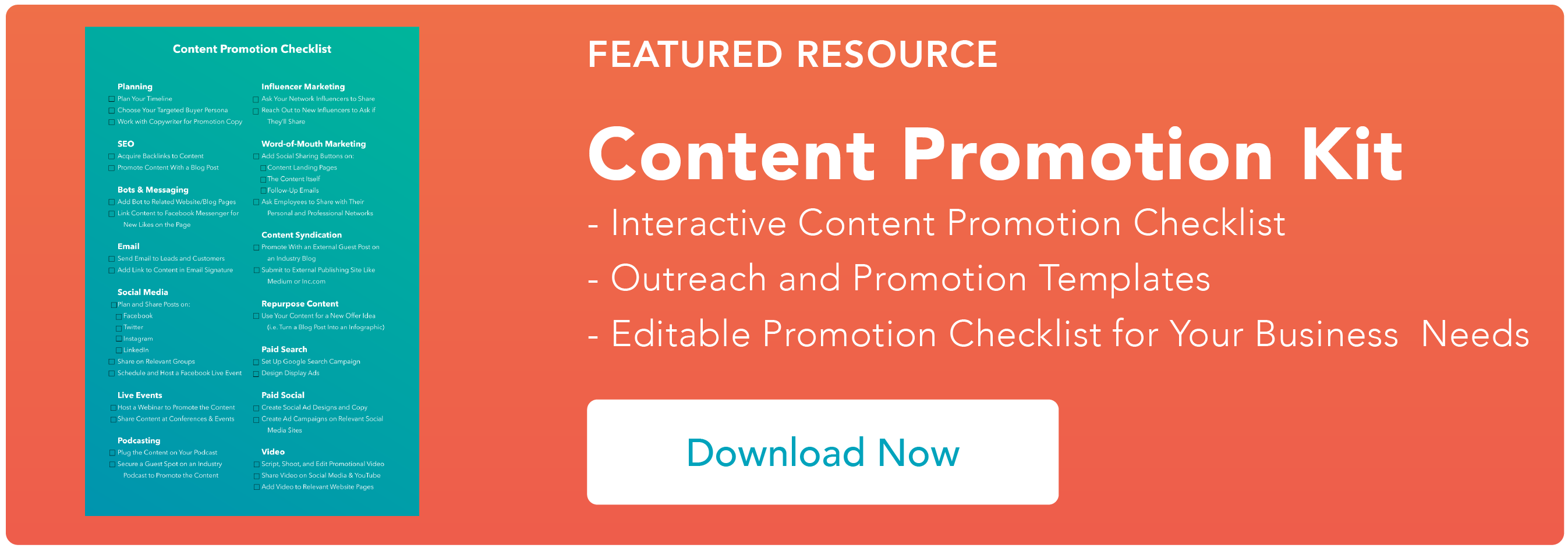7 Things Creators Should Know About Marketing Their Book
- VXC Express
- May 21, 2024
- Knowledge Base
- 0 Comments

Writing a book is a gargantuan task, and reaching the finish line is a feat equal to summiting a mountain.
Getting the “It’s a great book, you did it!” email from my publisher was a high I hope I’ll never forget. I thought all the hard work was over after that. What a sucker I was.
Book marketing felt completely overwhelming to me (which I’m embarrassed to say as a professional marketer). And there are endless book marketing strategies and click-bait articles on how to become a New York Times bestseller.
And there’s a lot on the line: good book marketing attracts readers, leads to book sales, and more books down the line.
What I wanted more than anything during my book marketing process was an honest, thorough conversation with another author on how to market a book. And that‘s what I’m sharing with you today.
5 Helpful Book Marketing Tools
7 Tips for Marketing Your Book
How I Marketed My Book
My book, How to Be a Digital Nomad, was published by Kogan Page in January 2024. I was eyebrows-deep in my book marketing plan when my publisher let me know that they’d be funding a 12-week publicity campaign.
The campaign, run by The Book Publicist, got me in BBC, Reader‘s Digest, and Forbes, among other print and digital publications. Book promotion services are incredible assets, but they’re not in every budget and they’re still only one piece of the puzzle.
Before you spend money on professional marketing services, you’ll need to wrap your head around the basics of book marketing strategy.
These are the steps I took to market my book on my own, plus some bonus advice if you’re considering a professional campaign.

Step 1: I budgeted lots of time.
Magazines are planned a season in advance. Some podcasts are booked nine months out. Articles can take months to rank on Google.
Marketing and publicity take time. This means that your first step in marketing your book is beginning early enough to have your marketing efforts come to fruition at your release date.
You can promote your book for weeks, months, and years after it‘s released, but marketing is most important during its release.
This is what generally qualifies you for best-seller lists, and these numbers are also used by bookstores when they’re deciding what to stock on the shelves.
Here’s the book marketing schedule I used for myself:
- Marketing research: Began August 2023
- Marketing plan development: Began September 2023
- Plan execution: October 2023 – February 2024
- Release: January 2024
I’ll share a word of warning for your late-game marketing efforts in a minute.
Step 2: I got publicity training.
Publicity is similar to normal marketing, but they’re cousins (not twins). Marketing is the act of getting your name and message out there.
Publicity has the same end goal but does so by leveraging respected publications and tapping into their existing audiences.
So why did I choose publicity as my primary vehicle for book promotion?
- Publicity has a snowball effect. Getting featured in Reader’s Digest makes it easier for you to get featured in Forbes (and so on).
- The audience is already built. You can skip the line of attracting the audience from scratch and instead walk out onto a stage that’s built and already has raving fans.
- One story, endless outlets. I shared my same story with 49 podcasts, many digital publications, several print magazines, and two local newspapers. If I was creating unique content for my own website or YouTube channel, I could’ve only shared that same story once.
If you already have an audience gathered, fantastic: they’re already warmed up to your message and used to engaging with your content, which makes them easier leads for book sales.
But the opportunity to market your book to new oceans of people is too big to pass up.
To learn the ins and outs of publicity, I took the Impacting Millions course by Selina Soo.
Step 3: I committed to ongoing education.
Publishing is an intense industry, and if you’re like me (pre-book launch), you probably have no idea how a lot of it works.
The closest (or most enjoyable) way to learn about the publishing world I found was the On Good Authority Podcast by Anna David. I highly recommend working a few episodes into your weekly routine leading up to your release.
The episodes are delicious to listen to and shed light on the industry’s inner workings while also giving actionable tips for newbies (and span both traditional publisher and self-published books).
I found myself taking notes constantly while listening.
Some of my favorite interviews are with Estelle Erasmus, Ben Mezrich, and Ryan Paugh. I worked this into my routine beginning in September.
Step 4: I started pitching podcasts.
In October, I started pitching podcasts my story. Podcasts were my primary marketing focus because:
- Less work is required from the guest. Not much preparation is required and guests aren’t responsible for any of the post-production.
- The same story can be shared every time. No “reinventing the wheel” is necessary for podcasts, as it is for other mediums (such as guest blogging).
- Loyal listener base. Popular podcasts have very loyal listener bases and a long shelf-life.
I used the platform Podmatch and can’t recommend it enough (more on this in a moment).
Step 5: I built an author webpage.
You might be wondering: Shouldn’t this step have come before pitching podcasts?
Yes, building a website would ideally come before any marketing begins UNLESS building your webpage leads you to postpone your book marketing process. This was me.
When I initially started building my author webpage, it quickly became a black hole, and I felt like it would never be “ready” for eyeballs.
I felt it holding back the entire book marketing process, so I decided to pause the website until after the first podcast interviews were booked.
Step 6: I teamed with book marketers.
After working for almost ten years in marketing, I was excited to see what book marketers did differently from general marketers.
My campaign‘s focus was getting in front of other publications’ audiences (such as BBC Radio and Women’s Own Magazine), which confirmed my theory that publicity was a fruitful marketing path for book marketing.
What I learned: When book marketers secure you publicity, it’s often the result of pre-built relationships with publications and journalists.
They also have years of experience pitching outlets and bring so much niche-specific knowledge to the table.
Book promotion is a very specific type of marketing and it would be a mistake to task a virtual assistant (VA) or general marketing team member with tackling publicity outreach and expect the same results.
Self-published authors may have even more to gain from hiring niche-specific marketing services. A traditional publisher will offer some marketing services of their own, so self-publishing naturally creates a greater demand on the author.
5 Helpful Book Marketing Tools
Releasing a book is like launching a rocket into space, and each of these tools was an extra engine on my rocket ship.
1. Podmatch
Podmatch is the best way to get yourself booked on podcasts. Once you‘ve set up your profile, you can quickly apply to dozens of podcasts and easily communicate with hosts through your inbox.
It’s much easier than managing conversations in your email inbox, and hosts are typically very active. The standard membership costs $29 a month.

2. Gmail’s Built-In Email Scheduler
Pre-writing and scheduling emails will save you hours during your launch process. You don‘t need specific email marketing tools for this; Gmail has a native scheduler built in. I’ll share examples of batchable emails in a moment.

3. Notion
Notion is a workspace tool that can help you stay organized through the brainstorming, execution, and tracking of your book promotion process.
I used private Notion workspaces for all of the behind-the-scenes work and created a shareable workspace for my industry contacts who offered to help promote the book.

4. Later
Later is a social media scheduler that allows you to pre-schedule posts across platforms. It‘s incredibly user-friendly and I’m surprised that they give users so many features on the free plan.
Pro tip: On the Later free plan, you can only schedule 12 posts on each platform per month — but, if you start your marketing far enough in advance, you can work within these limits.
If you run out of free posts and don’t have the budget to sign up for a paid plan, spend time using the native schedulers on Pinterest, LinkedIn, Facebook, Instagram, X, and TikTok.
5. Google Drive
In terms of file organization, Google Drive is as good as it gets. I can’t imagine going back to the days of having to save your work on a USB stick that was easily misplaced.
Pro tip: Name and file everything correctly 100% of the time. This will save so much time and make you an organization machine.

7 Tips for Marketing Your Book
Feeling more prepared to market your masterpiece? Here are my top tips to help you progress (and dare I say, enjoy the process).
Tip 1: Don’t overthink your website.
The right path for your author website will depend on your genre. Fiction writers can have an enormous amount of fun with their online presence. A stunning example of fiction website design is author Hafsah Faizal’s website.
Beyond her own website, Hafsah Faizal is also the founder of IceyDesigns, where she displays other author websites that she‘s designed. It’s a fantastic source of inspiration and guidance for fiction writers.
My recommendation for nonfiction writers? Don’t overcomplicate the website process. If you already have a website and your book supports your main brand, simply add a new tab to display your book.
You can see a great example of this from the Career Contessa.
A good author website needs to:
- Offer contact info.
- List praise for the book.
- Communicate your authority/expertise.
- Share past publicity (interviews, features, and so on).
- Include FAQs like release date, where to purchase, etc.
- Offer pictures of your book cover plus other photos for media use.
Is my author website perfect? Definitely not. I didn‘t have a budget for professional photos or a web designer.
The headshot I used is a selfie, and the book photo is a mockup I created in Canva before receiving a physical copy of my book. I’m not a professional web designer, but I did my best using a website template.
It would be quite different if I’d hired professionals to help, but I think clarity is the most important thing to remember when designing your website.

Tip 2: Schedule everything you can.
This naturally applies to social media, but you should also apply this to your inbox. Emails turned out to be an unexpected black hole during my book marketing process.
I‘m not referring to bulk email marketing, either — just plain ’ole email correspondence related to your book release.
You’ll save a lot of time when you pre-write and schedule emails such as:
- Endorsement request, follow-up, and thank-you.
- Book review request, follow-up, and thank-you.
- Interview request, follow-up, and thank-you.
- Request to share your book, plus follow-up and thank-you.
- Post-release thank you email to everyone else who helped.
Not only will batch-scheduling these emails free up time and headspace, it’ll also take away the repeated moment of decision-making.
The closer my book release date inched, the more insecure I got.
By January, the pre-release nerves had soaked through to the bone, and I could’ve never typed up and hit send on so many request emails related to interviews, reviews, and so on.
My scheduled emails saved the progress from flatlining.
Tip 3: Save some energy for promoting your features.
When you publish interviews and op-eds, people rely on you to promote them: most importantly, the hosts/publications.
The relationship with guests is supposed to be symbiotic, and they expect you to expand their viewership by sharing your features with your audience.
If you have a traditional publisher, they also want to re-share the content to show off their authors in the spotlight.
You can promote your book’s publicity this way:
1. Include links in your email marketing.
2. Schedule posts on social media.
3. Put it on your website.
One of the big regrets I have from my launch process is not dedicating more time to promoting my features.0
I had dozens of interviews come out within two weeks of each other at launch, and I was emotionally raw and had never felt worse about the book.
Out of exhaustion and insecurity, I failed to share some great features, and I know I really let those hosts/publications down.
It was embarrassing to ghost people who had me on their show, and I’m sure it impacted the odds of me being invited back for a future episode.
Tip 4: Decide how to handle book reviews.
Book reviews can bolster your spirits or make you feel like pulling the plug on book marketing altogether. I think it‘s helpful to decide in advance how you’d like to approach this.
Do you plan on using book reviews to market your book? If the answer is no, then I would wholeheartedly recommend you not read your reviews while you‘re still promoting your book’s release.
Reviews have too much power and will be a distraction whether they’re wonderful, or they move you to tears. I found myself obsessed with my book reviews, and I’m not alone.
The Guardian described Goodreads reviews as “a psychological thriller” for new authors.
For me, obsessing over book reviews drained the remaining enthusiasm from the book launch process. It ultimately made me feel like I never wanted to see my book again; I eventually blocked all review sites from my web browsers.
It took a few months before I saw my book on the shelves in a bookstore for the first time, and when this happened, I felt happy. Had I still been re-reading all of my book reviews on a daily basis, I’m not sure this would’ve happened.
Instead of relying on unverified book reviewers, you can use feedback from early readers/beta readers and your endorsers in your marketing materials.
Tip 5: Remember your closest circle.
Don’t forget your family and friends in the book marketing process (but don’t treat them like everybody else, either).
Spare your network the pre-written marketing materials and share some honest updates, both the highs and lows, on your Facebook page or through text updates.
Your past colleagues or friends from school might not be your target audience, but some will still transform into paying customers.
People whom I hadn’t spoken to in years came out of the woodwork to buy my book and send me a direct message on Facebook sharing their well-wishes. I was completely shocked on several occasions, but so incredibly appreciative.
Tip 6: Focus on ROI.
Avoid tasks that “feel” productive but don’t deliver results. For example, guest posting on blogs can feel like a great use of time, but writing a great blog post takes hours. Does the blog have a large readership?
Is the audience directly interested in what your book is about?
Not all opportunities are equally fruitful for you while you promote your book.
Tip 7: Create your content in advance.
Most of the above tips focus on reaching new potentially interested readers, but don‘t neglect the audience you’ve already gathered.
The majority of your email marketing, YouTube videos, social media posts, etc., related to your book should be batched and scheduled ahead of time.
This content can include:
- Pre-orders. Remind your audience that they can pre-order your book and why it helps.
- Organic content marketing. If applicable, create helpful content that’s related to your book topic.
- Personal author journey. Your followers and network are interested in your journey, especially if you‘re a first-time author. Try to show the human side of what it’s like to publish a book.
You‘ll be thanking yourself when these posts are going live across platforms and you’re freed up to focus on last-minute opportunities.
Next Steps for Marketing Your Book
Are you feeling ready to market your book with confidence and attract readers?
Marketing a book is a full-time job, especially for self-published authors who don’t have the support of a publisher with selling experience.
I hope this article made you feel less alone through all of it, and makes the process feel more approachable.
All the work will pay off soon. Congrats, author!








